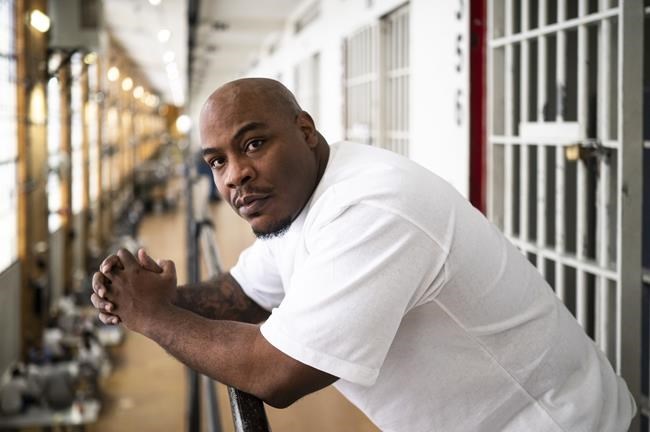MINNEAPOLIS (AP) — A 35-year-old man who was sent to prison for the 2004 killing of a man in a Minneapolis flower shop was released Monday after a judge ruled the eyewitness evidence on which his conviction rested was unreliable.
Marvin Haynes, who was 16 at the time of the killing, was released from prison shortly afterward the judge's ruling.
The Hennepin County Attorney's Office said it agreed with defense attorneys that Haynes had proven in court that admitting the shaky evidence violated his constitutional rights during his 2005 trial for the killing of Randy Sherer, 55, who was shot during a robbery.
“I just want to thank everybody that supported me through this whole journey,” Haynes told reporters outside the prison. “And now y’all can recognize that I’m actually innocent.”
Hennepin County Attorney Mary Moriarty said in a statement that Haynes' prosecution was a “terrible injustice.” She said his conviction depended almost entirely on eyewitness identification and that there was no forensic evidence, such as fingerprints or DNA, nor video connecting him to the crime.
“We inflicted harm on Mr. Haynes and his family, and also on Harry Sherer, the victim, his family, and the community," Moriarty said. "We cannot undo the trauma experienced by those impacted by this prosecution, but today we have taken a step toward righting this wrong.”
Moriarty said nearly 28% of cases nationally in which convictions are thrown out involve problems with eyewitness identification.
Judge William Koch held that absent the eyewitness evidence, which he said was unconstitutionally admitted, “it is doubtful there would have been sufficient evidence to sustain a conviction.” He noted that there was no physical evidence linking Haynes to the killing and dismissed all charges with prejudice, meaning they can’t be filed again.
Koch, who held a two-day evidentiary hearing on the case late last month, said in his order that Haynes' attorneys, from the Innocence Project, showed he did not match the physical description provided by the primary eyewitness. Haynes was “significantly younger” than description of the killer, about 50 pounds (22 kilograms) lighter and “significantly shorter,” the judge said. Haynes also had “much longer hair” than how the witness described the attacker, and his “manner of speech was not similar.”
The judge also found problems with how investigators conducted a photo lineup that did not include Haynes. The person the witness initially identified, saying she was 75-80% sure, was in another state at the time of the killing. Investigators used an old photo in another lineup from when Haynes had close-cropped hair, but he had grown it long since them. The eyewitness did not identify Haynes as the killer until a third lineup and in her trial testimony.
During the hearing, Haynes maintained his innocence, and four of his sisters testified he was asleep at home shortly before the killing.
“We are delighted to see Marvin finally regain his freedom and for the truth of his innocence to win out," Attorney Andrew Markquart of the Great North Innocence Project, said in a statement. "We are thankful to the Hennepin County Attorney’s Office for recognizing the strength of Marvin’s claim and for demonstrating the most noble ideals of the prosecutor in recognizing past errors and prioritizing justice as the highest value.”
It's "well established that subjecting witnesses to multiple viewings of a suspect risks tainting the identification, the group noted.
At the time of Haynes’ conviction, the county attorney was Amy Klobuchar, who is now Minnesota’s senior U.S. senator. Moriarty, who was formerly the county's chief public defender, said she was “deeply sorry” for all the opportunities Haynes missed while he spent more than half his life in prison.
“Doing the right thing sometimes means we must seek to undo the harms of the past, not defend them. And that is what we have tried to do today,” Moriarty said. “It is not easy to admit and correct our wrongs. But it is necessary.”
Steve Karnowski, The Associated Press



